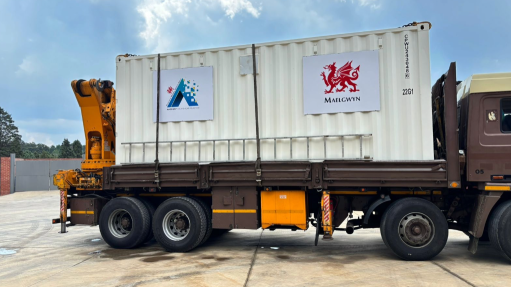
AACHEN MOBILE LABORATORY Maelgwyn Mineral Services Africa's Aachen mobile laboratory is designed to facilitate real-time analysis and faster decision-making for optimising metallurgical testing processes
As its first deployment to Tanzania, a containerised Aachen testwork laboratory is being supplied to a mining client in the country by mineral processing technology company Maelgwyn Mineral Services Africa.
Designed to facilitate real-time analysis and faster decision-making, the mobile laboratory will ensure that mining companies can optimise metallurgical testing processes with enhanced efficiency and drive cost-effectiveness, as it will reduce the need to ship large quantities of samples to out-of-country laboratories for testing.
Maelgwyn’s Aachen mobile laboratory is equipped with several components to handle various metallurgical tests, such as cyanide analysis, bottle roll tests, stirred tank leach tests, solid liquid separation tests using a filtration bench, process monitoring, Aachen High-Shear Reactor testwork, and multimeter analysis for chemical composition, temperature and oxidation-reduction potential tests.
The Aachen mobile laboratory is a focal component of Maelgwyn’s innovative metallurgical testwork process and simulates the company’s Aachen High-Shear Reactor testwork.
The bottle roller simulates a plant leaching circuit by facilitating bottle roll tests, while overhead stirrers and reactors enable stirred tank leach tests and oxygen uptake rate tests.
Conducting the work on-site, as opposed to at external laboratories, according to Maelgwyn, has the added advantage of having unlimited quantities of fresh residual leach slurry at disposal, which is representative of operational variables such as feed-mineralogy, comminution and grind, and leach process settings.
Maelgwyn has been actively conducting on-site testwork in Tanzania, with this latest deployment marking the third campaign across three different sites in just over a year.
The results from previous campaigns, the company notes, have been “highly promising”, leading to commercial agreements to implement the Aachen technology on a full scale. ![]()